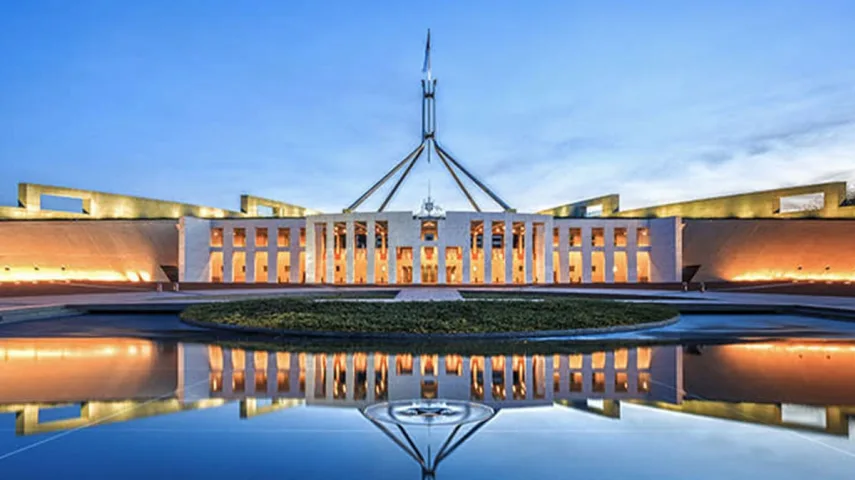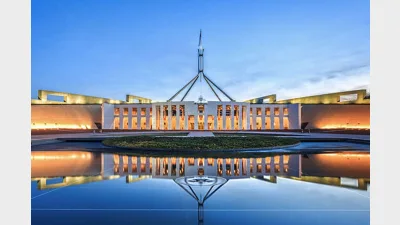How can the $3m super tax proposals be improved?



Indexing the $3 million threshold and using actual earnings to calculate tax and refunds if a balance falls below the threshold are among suggestions from financial services associations to the Treasury super concession consultation.
The Better Targeted Superannuation Concessions consultation paper sought feedback on reductions to the available tax concessions for those who had more than $3 million in super. This would see the headline tax rate doubled from 15 per cent to 30 per cent for earnings corresponding to the proportion of an individual’s super balance that was greater than $3 million.
The move was expected to bring in approximately $2 billion in additional tax over four years.
In its submission, the Financial Services Council (FSC) questioned the lack of indexation on the $3 million threshold.
“Leaving the decision of when and if to index the $3 million threshold to a future Government does not provide superannuation consumers and the industry with sufficient certainty and is not consistent with sound long-term super tax policy,” it said.
“Ideally, these settings would promote public confidence in the superannuation system over the medium to longer term. Not indexing the $3 million threshold undermines this broader objective.”
Instead, the FSC recommended indexing the threshold so it retained real value over time. Alternatively, it suggested the withdrawal of balances above $3 million as a one-off process with appropriate relief that would mean indexation was not an issue.
It also recommended the government explored the possibility of changing existing preservation rules for members with a balance above $3 million but who were currently unable to withdraw as they did not currently meet a condition of release.
Meanwhile, the SMSF Association felt the policy discriminated against self-managed superannuation funds (SMSFs) and suggested a default notional earnings rate should apply. Around three-quarters of the members affected by the change would be SMSF members, chief executive, Peter Burgess, said.
A possible option would be using actual earnings to calculate the new tax, but Burgess said this had been dismissed as being too challenging for funds regulated by the Australian Prudential Regulation Authority (APRA).
Burgess said: “We caution against setting what is a dangerous and concerning precedent. Positioning in this manner is counter to vertical and horizontal equity taxation principles. When we consider the various distortions that arise and exceptions that will need to be addressed, the outcome is far from simple or equitable.
“The lack of equity and unintended consequences arising from the proposal are driven by a desire to placate the large APRA funds — a clear case of the ‘tail wagging the dog’. Given its significance for SMSFs, and the distortions already arising, any model must be considered in an SMSF context.
“It is unfair that SMSF members with balances above $3 million will be required to pay tax on unrealised gains because some APRA-regulated funds may find it difficult to report the taxable earnings attributable to members.”
This was echoed by Natasha Panagis, head of superannuation and financial services at the Institute of Financial Professionals Australia, who agreed the extra 15 per cent should be applied to actual taxable income.
“Existing software programs already allow super funds to report and calculate actual taxable income at the fund level and distribute the net amount to each member’s account. Only a slight modification would be required to break up the fund’s earnings into two components for each member, being taxable earnings and untaxed earnings (unrealised gains),” Panagis said.
“This approach is the simplest way to tax actual earnings on member balances that are above $3 million as it is based on current tax law principles and will mean members will not be taxed on any unrealised gains.”
She described the proposals in their current form as a “tax grab” by the government under the guise of creating a more equitable super system.
“The main driver seems to be the need for an urgent tax grab to address the Commonwealth’s debt position that the government does not need to pay back if markets crash, with a more ‘equitable’ superannuation system running a distant second,” Panagis said.
IFPA recommended changes such as enabling individuals to receive a refund of tax previously paid if their balance reduced below $3 million in a future subsequent year, ensuring the $3 million threshold was indexed to keep up with inflation and allowing members to remove the excess from their super if they have not met a condition of release.
Recommended for you
Governor Bullock took a more hawkish stance on Tuesday, raising concerns over Trump’s escalating tariffs, which sent economists in different directions with their predictions.
Equity Trustees has announced the appointment of Jocelyn Furlan to the Superannuation Limited (ETSL) and HTFS Nominees Pty Ltd (HTFS) boards, which have oversight of one of the companies’ fastest growing trustee services.
Following growing criticism of the superannuation industry’s influence on capital markets and its increasing exposure to private assets, as well as regulators’ concerns about potential risks to financial stability, ASFA has released new research pushing back on these narratives.
A US-based infrastructure specialist has welcomed the $93 billion fund as a cornerstone investor.













